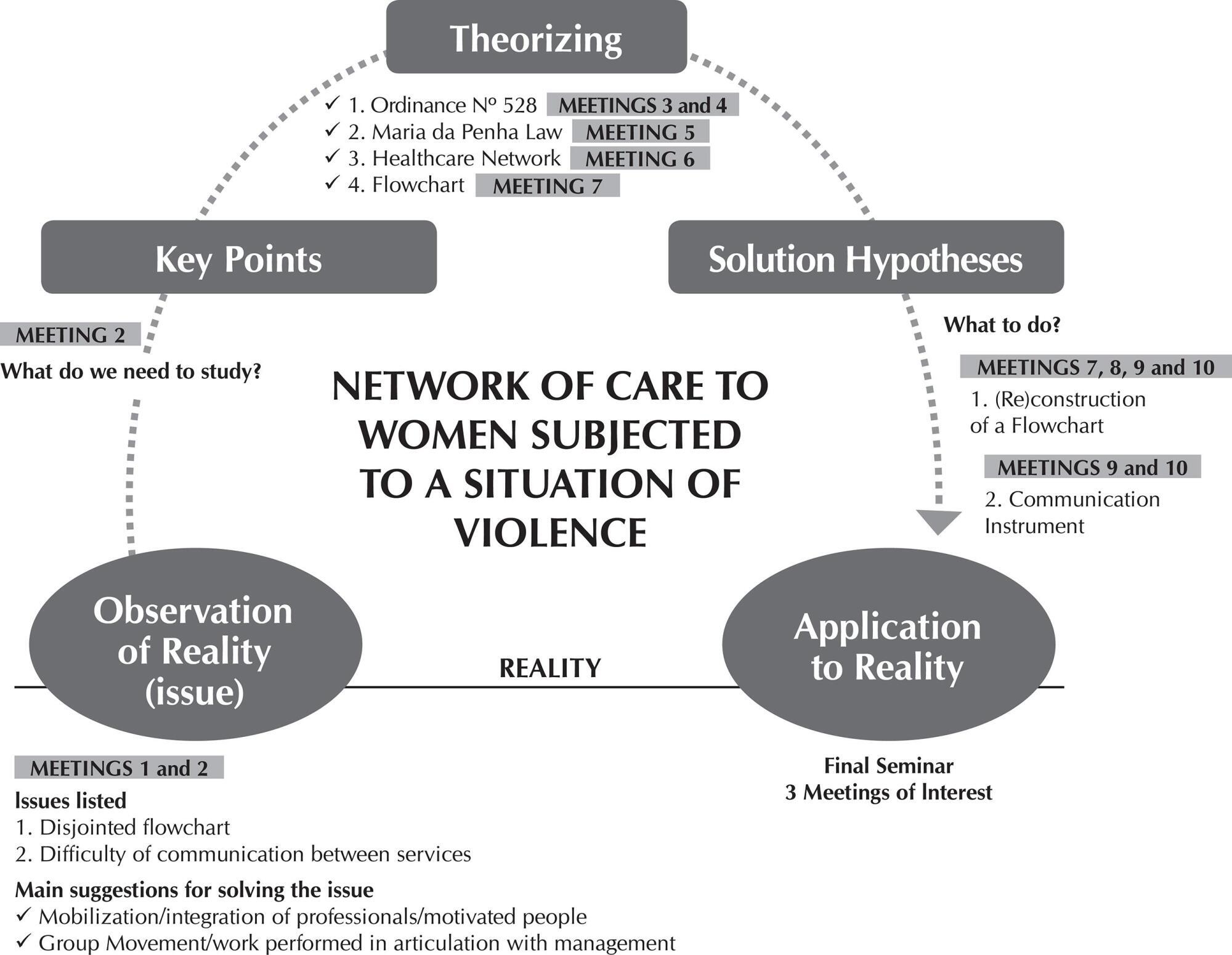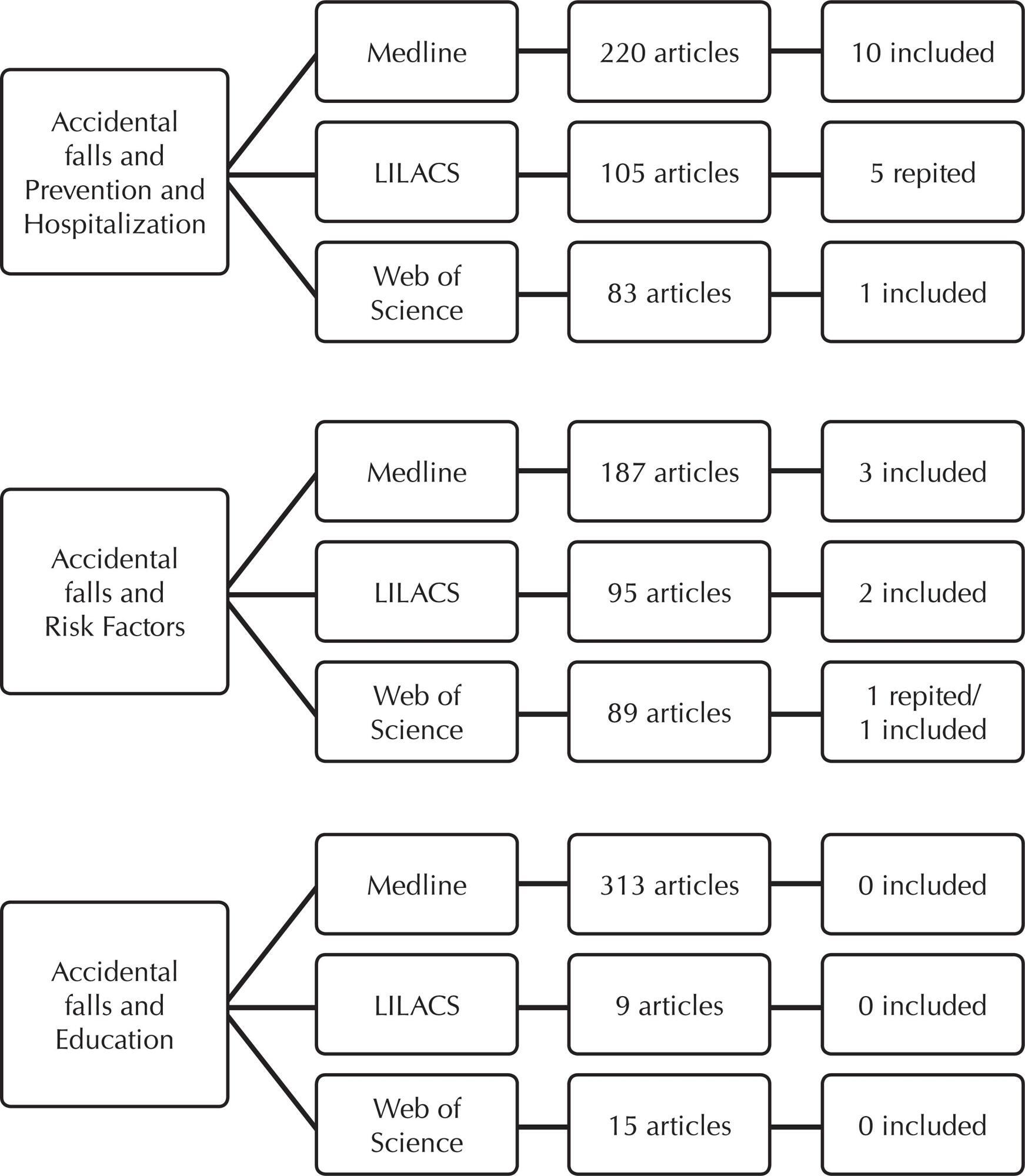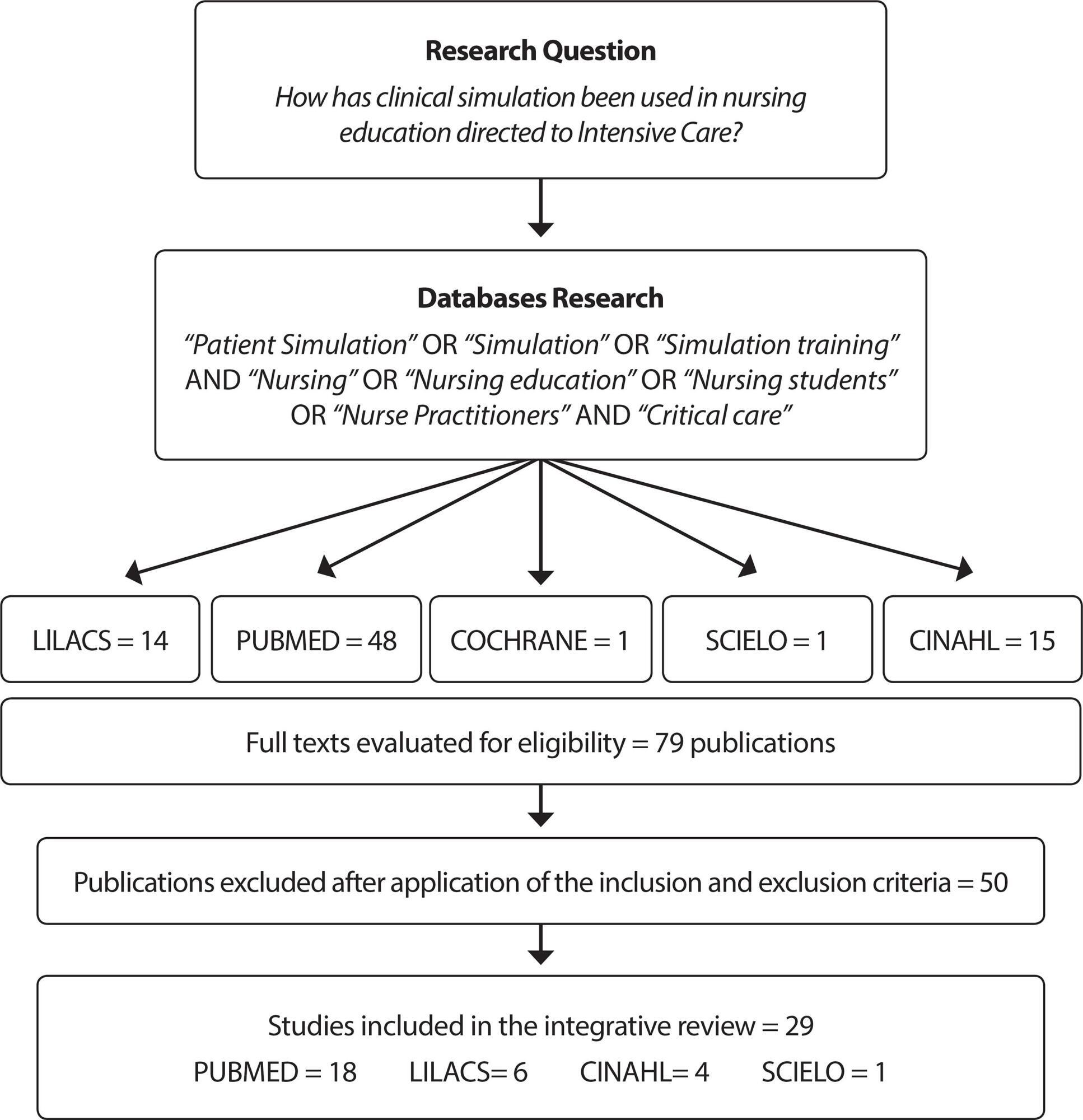-
01-01-2018
A Glance at the Good Practices of Nursing in Primary Care
Revista Brasileira de Enfermagem. 2018;71(3):930-931
Abstract
A Glance at the Good Practices of Nursing in Primary Care
Revista Brasileira de Enfermagem. 2018;71(3):930-931
DOI 10.1590/0034-7167.2018710301
Views0a) Geopolitical territory of production and reproduction of life and work as a setting of GPNuPC Although several actions happen at home, and at the Basic Health Unit, geopolitical territory is the primary focus of GPNuPC. A territory or geopolitical space is where life is produced and therefore is where health needs and vulnerabilities appear. […]See more -
01-01-2018
Um olhar sobre as Boas Práticas de Enfermagem na Atenção Básica
Revista Brasileira de Enfermagem. 2018;71(3):930-931
Abstract
Um olhar sobre as Boas Práticas de Enfermagem na Atenção Básica
Revista Brasileira de Enfermagem. 2018;71(3):930-931
DOI 10.1590/0034-7167.2018710301
Views0a) O território geopolítico de produção e reprodução da vida e do trabalho como cenário da BPEnABAs BPEnAB, mesmo ocorrendo no domicílio, na unidade básica de saúde, têm o território geopolítico como foco primordial. Um território ou um espaço geopolítico, é onde se produz a vida e, portanto, também onde aparecem as necessidades em saúde […]See more -
REFLECTION01-01-2018
The Tidal Model: analysis based on Meleis’s perspective
Revista Brasileira de Enfermagem. 2018;71(2):457-462
Abstract
REFLECTIONThe Tidal Model: analysis based on Meleis’s perspective
Revista Brasileira de Enfermagem. 2018;71(2):457-462
DOI 10.1590/0034-7167-2016-0394
Views0See moreABSTRACT
Objective:
To critically reflect on the conceptual components of the Tidal Model in the application of the mental healthcare process.
Method:
Critical analysis based on the Models of Theory Analysis, focused on the clarity and consistency of the theoretical components of the Tidal Model.
Results:
The clarity of the theory was verified through the demonstration of the following components: functional, presuppositions, concepts and propositions. The consistency is due to the possibility of proven application in several countries with different populations.
Conclusion:
There is a vast field of research and possibilities of application in the Brazilian nursing consultation, in search of usefulness and support in nursing care.
-
EXPERIENCE REPORT01-01-2018
Clinical and epidemiological teaching of dengue through simulated practice
Revista Brasileira de Enfermagem. 2018;71(2):451-456
Abstract
EXPERIENCE REPORTClinical and epidemiological teaching of dengue through simulated practice
Revista Brasileira de Enfermagem. 2018;71(2):451-456
DOI 10.1590/0034-7167-2016-0503
Views2See moreABSTRACT
Objective:
to describe the experience of clinical teaching on dengue and the practice of epidemiological surveillance using problematization methodology.
Method:
report of experience on educational activity with undergraduate nursing students, held in March 2016, at a public university in the city of São Paulo, conceived in four stages: dialogic lecture, active search of Aedes aegypti, case study and simulation of nursing consultation to individuals with dengue.
Results:
The activity allowed to retrieve previous knowledge about the disease, respond to exercises that addressed different clinical situations and epidemiological surveillance, including in situ evaluation of possible mosquito outbreaks, and discuss the need to expand prevention and health of the individual and the community, the impact of the media in the dissemination of cases and the coping difficulties experienced in the different levels of attention.
Conclusion:
the methodology adopted enabled qualified training of students to cope with dengue.

-
EXPERIENCE REPORT01-01-2018
Journal Club: a group of research experience
Revista Brasileira de Enfermagem. 2018;71(2):446-450
Abstract
EXPERIENCE REPORTJournal Club: a group of research experience
Revista Brasileira de Enfermagem. 2018;71(2):446-450
DOI 10.1590/0034-7167-2016-0539
Views0See moreABSTRACT
Introduction:
the Journal Club (JC) is a teaching and learning strategy developed by individuals who meet to discuss scientific articles in periodicals.
Objective:
to describe the experience of the JC strategy at the Group for Studies and Research in Health Services Administration and Nursing Management (Gepag).
Method:
case studies or scientific research demonstration mode of practical experience for the understanding and justification of facts.
Results:
Gepag JC emerged in 2008 and, in 2014, was computerized with the Google Drive®, in order to increase its scope and optimize the Group›s meetings. From April to May 2014, the instrument was tested and adjusted, resulting in advancements.
Final considerations:
the advantages involved optimizing the time of meetings, facilitation of access to publications of interest to the Group and creating the database to support future research.

-
EXPERIENCE REPORT01-01-2018
Problematization Methodology and Convergent Healthcare Research: praxis proposal in research
Revista Brasileira de Enfermagem. 2018;71(2):440-445
Abstract
EXPERIENCE REPORTProblematization Methodology and Convergent Healthcare Research: praxis proposal in research
Revista Brasileira de Enfermagem. 2018;71(2):440-445
DOI 10.1590/0034-7167-2016-0362
Views1See moreABSTRACT
Objective:
Presenting theoretical subsidies for the nursing care practice based on the possibility of convergence between research practice and educational practice.
Method:
The Convergent Healthcare Research was developed from February to August 2015, with an intersectoral working group formed by 32 participants, including health, social services and public safety professionals. Ten group meetings were organized, based on the Problematization Methodology with Maguerez’s Arch.
Results:
The reflection-action movement resulted in the shared (re)building of the flowchart of care to women subjected to a situation of violence, as a device for communication between the services.
Final considerations:
The research practice based on the Problematization Methodology with Maguerez’s Arch proved to be useful and viable in qualitative research, which has as purpose the transformation of the reality studied.

-
REVIEW01-01-2018
Conceptual definitions of indicators for the nursing outcome “Knowledge: Fall Prevention”
Revista Brasileira de Enfermagem. 2018;71(2):431-439
Abstract
REVIEWConceptual definitions of indicators for the nursing outcome “Knowledge: Fall Prevention”
Revista Brasileira de Enfermagem. 2018;71(2):431-439
DOI 10.1590/0034-7167-2016-0686
Views0See moreABSTRACT
Objective:
to construct conceptual definitions for indicators of nursing outcome Knowledge: Fall Prevention, selected for evaluation of hospitalized patients with the nursing diagnosis Risk for falls.
Method:
integrative literature review performed in the LILACS, MEDLINE and Web of Science databases, comprising articles published in English, Spanish and Portuguese languages from 2005 to 2015.
Results:
the final sample of the study was composed of 17 articles. The conceptualizations were constructed for 14 indicators of nursing outcome Knowledge: Fall Prevention focused on hospitalized patients.
Conclusion:
the theoretical support of the Nursing Outcomes Classification (NOC), through the process of constructing the conceptual definitions of the indicators of its results, allows nurses to accurately implement this classification in clinical practice and to evaluate the effectiveness of their interventions through the change of the patients’ status over time.

-
REVIEW01-01-2018
Integrative literature review: sleep patterns in infants attending nurseries
Revista Brasileira de Enfermagem. 2018;71(2):424-430
Abstract
REVIEWIntegrative literature review: sleep patterns in infants attending nurseries
Revista Brasileira de Enfermagem. 2018;71(2):424-430
DOI 10.1590/0034-7167-2016-0480
Views0See moreABSTRACT
Objective:
To identify evidence available in the literature about sleep patterns of infants attending nurseries.
Method:
An integrative review of studies published in Portuguese, English or Spanish available in full text on LILACS, CINAHL, and PubMed databases. The following descriptors sono, lactente and creches or berçários (in Portuguese) and sleep, infant and childcare or nurseries were used for LILACS, CINAHL and Pubmed, respectively. Nine studies were selected and analyzed.
Results:
The main component explored in the studies about sleep pattern is the sleep position of the infants, due to its association with sudden infant death syndrome. The results pointed to the need to promote and develop written guidelines regarding behavioral practices to reduce the risk of this phenomenon.
Conclusion:
Evidence has identified sleep issues, mainly regarding the sleep position of the infant and the environment where the infant sleeps, showing that it is critical to set routines and interventions to improve the quality of sleep care of infants attending nurseries.
-
ORIGINAL ARTICLE06-08-2020
Usability of a mobile application on diabetic foot self-care
Revista Brasileira de Enfermagem. 2020;73(4):e20180862
Abstract
ORIGINAL ARTICLEUsability of a mobile application on diabetic foot self-care
Revista Brasileira de Enfermagem. 2020;73(4):e20180862
DOI 10.1590/0034-7167-2018-0862
Views0See moreABSTRACT
Objectives:
to assess the usability of an app prototype for diabetic foot self-care by an end user.
Methods:
a descriptive study that uses heuristic assessment of a hybrid app usability. Fifteen users of an outpatient diabetes care service in a capital of Northeastern Brazil participated in the study during April 2018. The usability measurement tool called Smartphone Usability questionnaiRE was applied.
Results:
the lowest score was 77 and the highest was 112, with an average usability of 96.1 points. Usability was framed in the last two levels, 70 and 8o. Users now strongly agree (level 70) and fully (level 80) with the assessed items, which represents good usability of the apps prototype.
Conclusions:
the final product developed focuses on user needs and requirements, which can ensure usability based on effectiveness, efficiency and satisfaction triad.
-
08-19-2019
Clinical simulation in nursing education in intensive therapy: an integrative review
Revista Brasileira de Enfermagem. 2019;72(4):1061-1070
Abstract
Clinical simulation in nursing education in intensive therapy: an integrative review
Revista Brasileira de Enfermagem. 2019;72(4):1061-1070
DOI 10.1590/0034-7167-2018-0217
Views0See moreABSTRACT
Objective:
to analyze the publications on clinical simulation practices for education in Nursing in Intensive Care.
Method:
an integrative review carried out through LILACS, PubMed, Cochrane Library, CINAHL and SciELO databases, of articles published from 2008 to 2017.
Results:
29 articles were selected, of which 76% discuss the use of simulation in continuing education of nursing professionals, while the others describe their use for student education. There is a higher prevalence of studies with a level of evidence 6 (17), with 28 international publications. There was an increase in scientific production, with 16 articles published in the last three years.
Conclusion:
variables after simulation use, such as confidence, communication skills, efficiency in the identification of clinical worsening of patients, development of technical skills, teamwork and clinical decision-making, presented a significant improvement, demonstrating that this tool is effective in qualifying care for critical patients.

-
ORIGINAL ARTICLE09-16-2019
Social incentives for adherence to tuberculosis treatment
Revista Brasileira de Enfermagem. 2019;72(5):1182-1188
Abstract
ORIGINAL ARTICLESocial incentives for adherence to tuberculosis treatment
Revista Brasileira de Enfermagem. 2019;72(5):1182-1188
DOI 10.1590/0034-7167-2017-0654
Views0See moreABSTRACT
Objective:
To analyze the influence of social incentives for adherence to tuberculosis (TB) treatment.
Method:
Qualitative study, in which 26 primary health care professionals of São Paulo were interviewed in 2015.Their testimonies were submitted to the speech analysis technique. The theoretical reference was the social determination of the health-disease process. Ethical procedures were observed.
Results:
TB is related to precarious living conditions. Incentives such as the basic food basket and transportation stipends are relevant for patients’ adherence to treatment, as well as to the create bonds between the patient and the health team.
Final considerations:
The incentives strengthened adherence to TB treatment. However, interventions in the context of public measures must transcend the remedial dimension and be guided towards the transformation of the TB situation, which means supporting processes that modify living conditions.
-
REFLECTION05-03-2021
Florence Nightingale’s theory and her contributions to holistic critical thinking in nursing
Revista Brasileira de Enfermagem. 2021;74(2):e20200139
Abstract
REFLECTIONFlorence Nightingale’s theory and her contributions to holistic critical thinking in nursing
Revista Brasileira de Enfermagem. 2021;74(2):e20200139
DOI 10.1590/0034-7167-2020-0139
Views0See moreABSTRACT
Objective:
to reflect on Florence Nightingale’s legacy and describe her contributions to critical holistic thinking in nursing.
Methods:
this is a theoretical reflection, for which scientific productions on Florence Nightingale’s environmental theory, as published in national and international journals, were based.
Results:
Florence Nightingale’s philosophy and teachings emphasize that the nurse must use her brain, heart and hands to create healing environments to care for the patient’s body, mind and spirit. Nursing, since the time of Nightingale, has been building the holistic paradigm, in all schools of thought, with a view to a humanistic approach to the human being in their indivisible relationship with the environment.
Final considerations:
Florence’s contributions to holistic critical thinking in nursing are evident, constituting nurses’ differential in clinical practice.
-
ORIGINAL ARTICLE07-01-2020
Homeless population: characterization and contextualization by census research
Revista Brasileira de Enfermagem. 2020;73(5):e20190236
Abstract
ORIGINAL ARTICLEHomeless population: characterization and contextualization by census research
Revista Brasileira de Enfermagem. 2020;73(5):e20190236
DOI 10.1590/0034-7167-2019-0236
Views0See moreABSTRACT
Objectives:
to analyze characteristics of homeless people and factors associated with living on the streets.
Methods:
a census-type sectional survey carried out between 2015 and 2018, in the municipality of Maringá-Paraná. A total of 701 homeless answered a structured questionnaire with sociodemographic data, living conditions, and drug use. We used Pearson’s correlation test for the association analysis of the variables at a 95% confidence level.
Results:
men (90.7%) the average age of 37.7 years had been homeless for an average of 5.39 years. Most had little education (54.2%), and homelessness was due to drug use (47.2%) and family disagreements (38.9%).
Conclusions:
drug use and family disagreements were the main reasons for homelessness. Time on the street, gender, and drugs were associated with a negative correlation to be homeless; and age, mean daily income, the number of daily meals, having been in prison, and having an income source were associated with positive correlation.
-
ORIGINAL ARTICLE10-21-2019
Religious/spiritual coping and spiritual distress in people with cancer
Revista Brasileira de Enfermagem. 2019;72(6):1534-1540
Abstract
ORIGINAL ARTICLEReligious/spiritual coping and spiritual distress in people with cancer
Revista Brasileira de Enfermagem. 2019;72(6):1534-1540
DOI 10.1590/0034-7167-2018-0585
Views0See moreABSTRACT
Objective:
To investigate the relation between the presence of spiritual distress and use of RSC and sociodemographic, clinical and religious/spiritual variables in people with cancer.
Method:
Cross-sectional study conducted in an association for support to people with cancer. The data obtained with the tools were analyzed using the Spearman‘s correlation coefficient and the Mann-Whitney Test.
Results:
129 volunteers participated in the study, of which 57% showed moderate spiritual distress, 96% used medium and high positive religious/spiritual coping. Spiritual distress showed positive correlation with negative religious/spiritual coping (P<0.001) and inverse correlation with age (p 0.002). The use of positive religious coping was statistically significant in people who have religious practices (p 0.001).
Conclusão:
Spiritual distress is a phenomenon that is present in the lives of people with cancer and has significant relation with the use, in a negative manner, of religion/spirituality as a way of coping with the disease.
-
REVIEW06-26-2023
Barriers to Pre-Exposure Prophylaxis (PrEP) use for HIV: an integrative review
Revista Brasileira de Enfermagem. 2023;76(3):e20210963
Abstract
REVIEWBarriers to Pre-Exposure Prophylaxis (PrEP) use for HIV: an integrative review
Revista Brasileira de Enfermagem. 2023;76(3):e20210963
DOI 10.1590/0034-7167-2021-0963
Views0See moreABSTRACT
Objectives:
to identify and synthesize scientific evidence on the barriers and difficulties for Pre-exposure Prophylaxis (PrEP) use and compliance for HIV.
Methods:
an integrative literature review, using the MEDLINE/PubMed, Cumulative Index to Nursing and Allied Health Literature (CINAHL), Academic Search Premier and Scopus (Elsevier) databases.
Results:
all (100%) the articles included identified that PrEP users experience some type of structural barrier related to health services such as long distance from the units, suboptimal logistics for taking pills and professional resistance to prescribing PrEP. Furthermore, 63.21% identified social barriers, such as stigma about sexuality and HIV, in addition to individual barriers such as alcohol use, adverse effects, and concerns about long-term toxicity.
Conclusions:
the barriers to PrEP use are multifactorial. Effective interventions are needed to support PrEP users in accessing, complying with, and retaining health services.

-
EXPERIENCE REPORT10-26-2020
Brazilian Nursing Process Research Network contributions for assistance in the COVID-19 pandemic
Revista Brasileira de Enfermagem. 2020;73:e20200798
Abstract
EXPERIENCE REPORTBrazilian Nursing Process Research Network contributions for assistance in the COVID-19 pandemic
Revista Brasileira de Enfermagem. 2020;73:e20200798
DOI 10.1590/0034-7167-2020-0798
Views0See moreABSTRACT
Objective:
to describe the theoretical construction process of nursing process support documents in COVID-19 care scenarios.
Methods:
an experience report of the joint activity of the Brazilian Nursing Process Research Network (Rede de Pesquisa em Processo de Enfermagem) composed of Higher Education and Health Institution researchers in Brazil.
Results:
five instruments were organized collectively, involving the elements of nursing practice (nursing diagnoses, outcomes and interventions) in assistance for community; for patients (with suspected or mild, moderate, and critical COVID-19 and residents in Nursing Homes); for nursing workers’ health support, also subsidizing registration and documentation during the COVID-19 pandemic.
Final considerations:
valuing the phenomena manifested by families/communities, patients and health professionals is essential for early detection, intervention, and prevention of diseases.
Search
Search in:
Nuvem de Tags
Adolescente (85) Atenção Primária à Saúde (239) COVID-19 (91) Criança (91) Cuidados de Enfermagem (269) Educação em Enfermagem (151) Educação em Saúde (139) Enfermagem (930) Enfermagem Pediátrica (86) Estudantes de Enfermagem (77) Estudos de Validação (131) Família (87) Idoso (208) Promoção da Saúde (99) Qualidade de Vida (104) Saúde do Trabalhador (86) Saúde Mental (145) Saúde Pública (82) Segurança do Paciente (150) Tecnologia Educacional (100)



